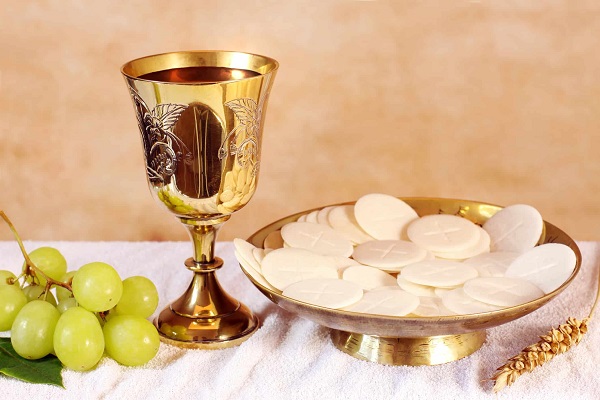The table had been set, complete with the wine and the bread. The 12 disciples were all seated, reclining around the table. Passover was in the air, but so was a diabolic plan in the heart of a betrayer.
Reclining at the table head, did the Teacher know that his treasurer, Judas Iscariot, harboured a vicious plot to betray him that night? Yes, he did.
When the time came for the Lord to administer the first holy communion, did he allow Judas to take part in that divine fellowship in remembrance of him? Yes, the Teacher did.
How about his senior presbyter, Simon Peter, who was to deny and disown him on oath later that night? The Teacher knew and had warned him about his approaching denial. Did Peter take part in the holy communion? Yes, he did.
Worldwide communion
Last Sunday, October 2, the reformed churches throughout the world joined hands to participate in what is referred to as “worldwide communion”.
This annual tradition, which is not different from the regular partaking of communion in congregations, assumes a new significance when it is observed collectively worldwide.
That significance is to encourage universal Christian unity so “that they all may be one,” (John 17:21) and in remembrance of Christ, the Head of the church.
But my focus is not the call for unity. My focus is on why some members of the congregation enjoy fellowship with Christ by sharing in the holy communion while others fail to take part.
Why the division?
The Lord Jesus instituted the holy communion so that believers would remember him and benefit from all the blessings that come with receiving and eating the bread as his body and taking the wine as his blood.
Why, then, are some members called “communicants”, which means they participate in the holy communion, and others labelled “non-communicants”, which means they do not partake in this divine fellowship?
If there is a division between “communicants” and “non-communicants” in our congregations, how can we claim to be in unity with other people across the globe sharing the world-wide communion?
My heart bleeds whenever I see “non-communicants” being deprived of communion when it is so beneficial for Christian worship and spiritual blessing.
Are any witches here?
One day after communion, I asked the congregation, “Those of you who didn’t come for communion, please, could you tell us why?” Ours is a small congregation, and out bond with the congregants enables us to ask such a question without inhibitions.
A woman’s hand shot up. “When I was coming to church, I quarrelled with a co-tenant and I still harbour bitterness in my heart.”
A young lady said she was unmarried and living with a man who was not her husband traditionally. A couple in co-habitation who had never partaken of the holy communion bowed as I looked in their direction.
One man said, “I was not prepared for communion today.”
So I asked, “Is there a witch among us here?” This shocking question raised a surprise on every brow. What kind of a dubious question was that?
In the Old Testament era, a witch would have been stoned to death (Exodus 22:18), let alone be invited to partake in a holy communion. Thanks to the Lord Jesus Christ who sets us free from the Mosaic laws!
No witch stood up, of course. So, I asked again, “If some of us who participated in the holy communion were witches, was it appropriate for them to take part?” Again, no one answered, and I wasn’t expecting any answer anyway.
Not qualified?
What a pity, that some members of the congregation fail to take part in a beautiful sacrament like the holy communion that affords Christians the opportunity to fellowship with Christ, share in his suffering, and remember his sacrificial death and victorious resurrection!
The obvious question begging to be asked is: Why? The few answers we got when I asked our congregants point to one reason: “We are sinners; we have sinned; we are not worthy; we are not qualified.”
Really? Not qualified by what criteria? So who are “qualified” to participate in the holy communion? The righteous? Who are those righteous congregants who feel qualified? Is it the minister and the leaders who are administering the holy sacrament?
Is the congregation divided between “holy” and “unholy” people, so that the holy ones may take the communion and the unholy ones may step aside?
Didn’t our Lord Jesus, who instituted the holy communion, say, “I came not to call the righteous, but sinners to repentance” (Luke 5:32)?
Next week: The good Lord willing, when we return to this subject next week, we will answer these questions. We will also look closely at what the Apostle Paul said about not participating in communion in an unworthy manner.

